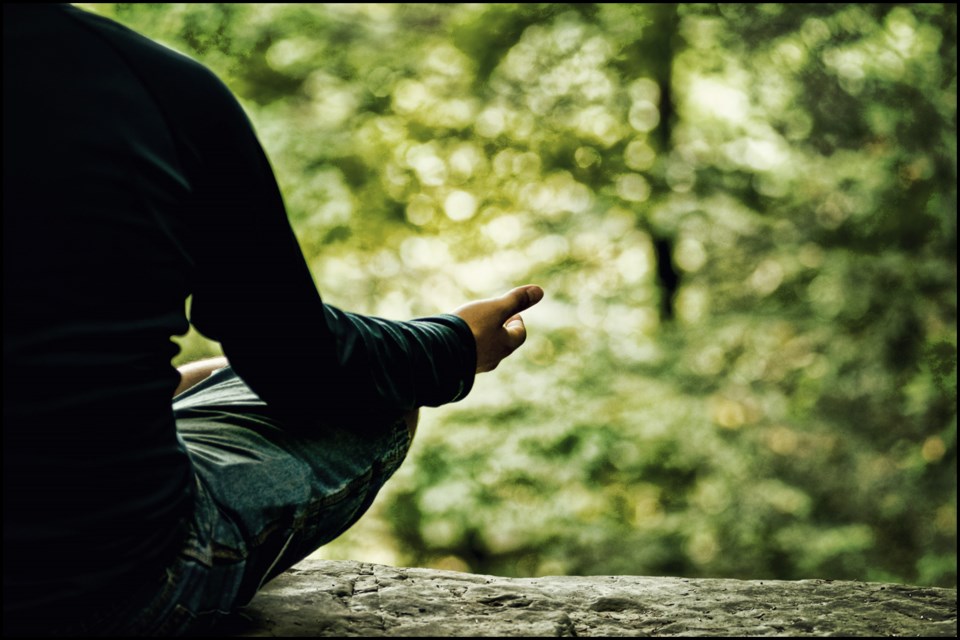Café Gratitude, which I recently discovered online, is an L.A.-based vegan eatery frequented by Hollywood celebrities. The dishes have “positive affirmations” rather than names: I Am Transformed, I Am Whole, I Am Magical, I Am Awakening, I Am Terrific, etc. The wait staff reportedly sets down your plate while cheerily repeating the affirmation to you: “You are Grateful” or whatever.
You won’t find “I Am Ironic” on the menu, however. Like track shoes and textiles, irony is no longer produced in the USA, as indicated by the “Consciousness Award” bestowed on Café Gratitude by some outfit called Nowism “in acknowledgement of awesomeness.”
I’m sure the meals are healthy and delicious, but I would feel like a four-star nitwit announcing to some actress/model/waitress that “I Am Awesome” (Herb-cornmeal crusted eggplant Parmesan on grilled Panini bread with marinara sauce, cashew ricotta, sliced heirloom tomatoes, arugula and basil). The eatery seems inevitable in retrospect: a pitch-perfect blend of foodie culture, new age spirituality and mass-marketed narcissism.
Southern California has long been the vector for most American lifestyle memes, which invariably hop up the west coast and into British Columbian brainpans. It makes sense considering the state’s paradisiacal geography of sun, sand and surf. From the late ’30s to the early ’60s, a clutch of gurus and gadflies blew into the Bay area with the foundational texts of the human potential movement. The most notable included the “British mystical expatriates:” novelist Aldous Huxley, playwright Christopher Isherwood and thinker Gerald Heard. The three wise men would have nodded in agreement with the words of American philosopher Alfred North Whitehead: “The misconception which has haunted philosophical literature throughout the centuries is the notion of ‘independent existence.’ There is no such mode of existence; every entity is to only be understood in terms of the way in which it is interwoven with the rest of the universe.”
Whitehead’s pre-hippie homily doesn’t sit well with today’s culture of ego-targeted marketing, however. Over decades, the best minds in consumer psychology have helped engineer a background buzz of dissatisfaction and disconnection, in service of marketers. And the heavily commodified New Age scene, a subsidiary of the self-help industry, offers a solution of its own: even deeper exploration of the “me” meme. This probably isn’t the best approach to get people out of toxic patterns of self-absorption, yet it’s fully in keeping with the American cult of individualism, which began as one part Protestant work ethic and two parts frontier mentality.
When a polyglot spirituality emerged on the postwar U.S. west coast, with a vibrant mix of eastern and western beliefs, the ego was never far from the picture. The “self-as-source spirituality” of early 20th century America “dovetailed ever so neatly with the individualism promoted by corporate marketers and their psychology departments,” observes author Douglas Rushkoff in his 2009 book, Life Inc.
“Throughout the 20th century, personal freedom would become the rallying cry of one counterculture or another, only serving to reinforce the very same individualism being promoted by central authorities and their propagandists…. While you might expect the marriage of progressive sociopolitical goals and the culture of spirituality to ground activism in ethics, it turns out the opposite is true. That’s because what we think of spirituality today is not at all a departure from the narcissistic culture of consumption, but its truest expression,” the author observes.
Rushkoff may lay it on a bit thick — he fails to acknowledge the scientific evidence of health benefits from meditation and other spiritual practices — but I get where he’s coming from. I grit my teeth when I hear someone go on about the so-called “Law of Attraction,” which contends that if you think enough about something, good or bad, you will draw it toward you. This reminds me of former First Lady Barbara Bush’s response when asked on Good Morning America if the impending showdown with Iraq was putting a strain on her son in the Oval Office. “But why should we hear about body bags and deaths and how many, what day it’s gonna happen, and how many this or what do you suppose? Or, I mean, it’s, it’s not relevant. So, why should I waste my beautiful mind on something like that?” she offered in 2003.
www.geoffolson.com



